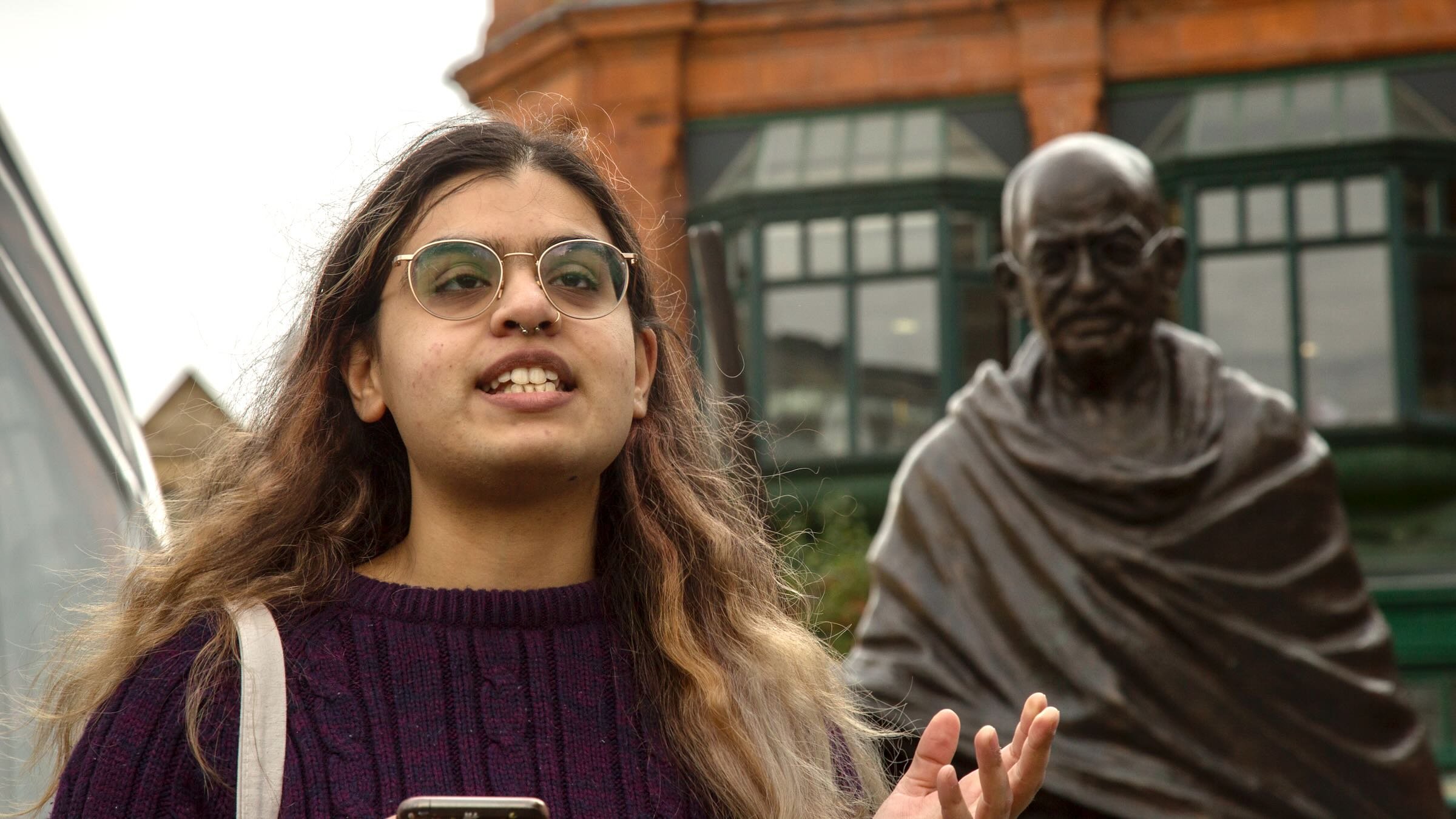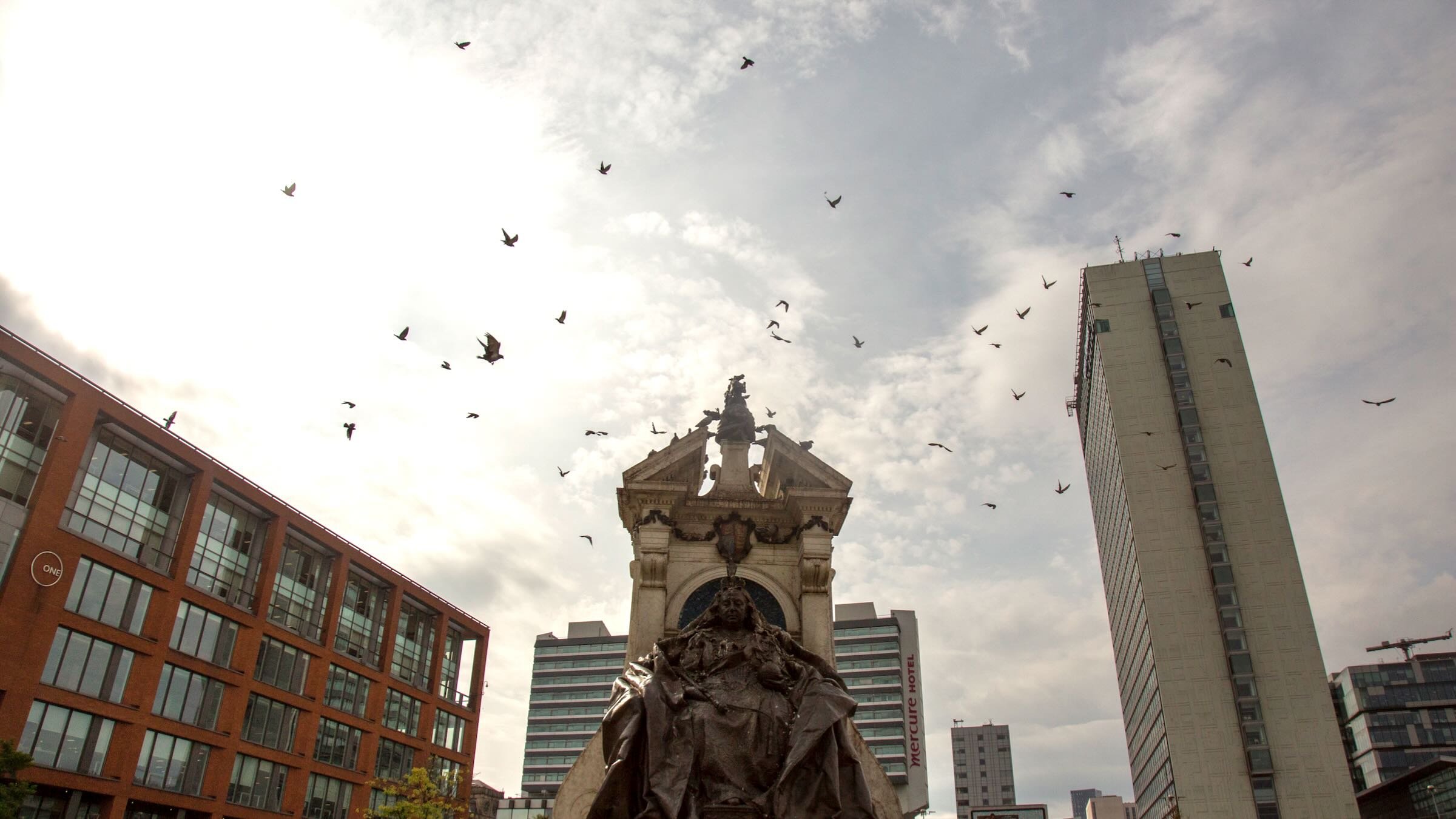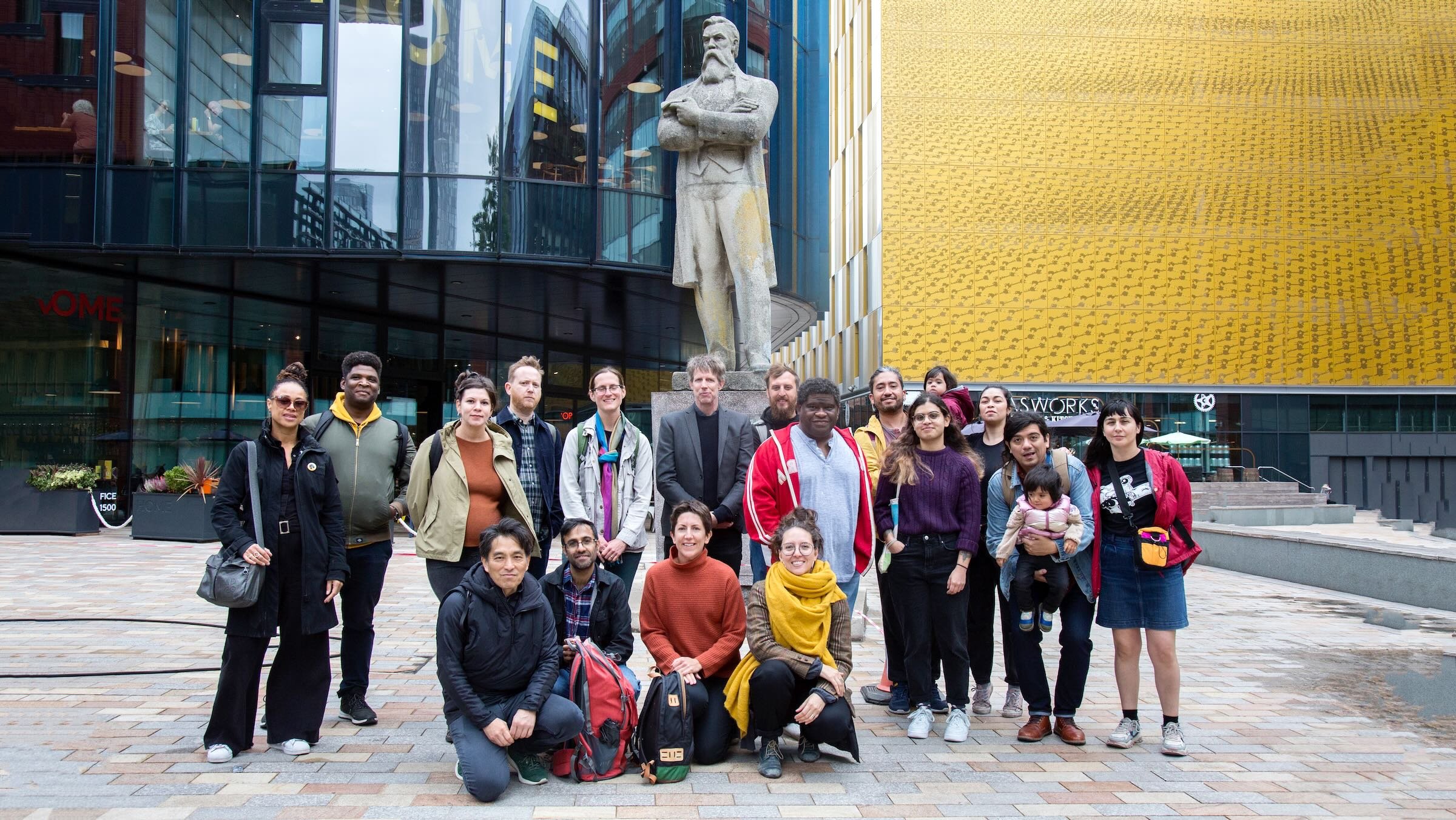Afterlives of Monuments and Alternative Urban Futures
21 - 22 September 2022
School of Social Sciences, University of Manchester
This two-day workshop explored how problematic landmarks are imaginatively and materially reconfigured for the future. Drawing on the interdisciplinary study of placemaking, materiality and temporality, and on the compelling work of artist-activists, we examine how urban landscapes are dynamic, affectively charged places that can help to constitute social and political change.
In recent years, the Black Lives Matter movement has intensified its focus on urban landscapes and landmarks, re-occupying urban spaces in which injustices and inequalities may be built into the very fabric of the city, and using these same spaces to imagine the future differently. Recent campaigns such as Rhodes Must Fall have powerfully shown how urban monuments that memorialise historical injustices can also become sites for articulating new kinds of politics and alternative future-making.
Meanwhile, in cities shaped by histories of colonialism or segregation, less spectacular reconfigurations take place through residents’ incremental interventions in everyday spaces. Through disruptive gestures or everyday struggles, activists have staged subversive representations, challenging inequalities and racialisation processes embedded in urban space. These re-arrangements and ruptures also raise the question of what comes next: whether spaces can be reimagined, and the challenges and opportunities this affords.
With participants from around the UK and internationally, the workshop combined intensive discussion and debate with a public showcase of art-activism interventions and a critical walking tour of some of Manchester’s monuments. The tour included statues of Abraham Lincoln, Gandhi, Robert Peel and Sylvia Pankhurst, as well as the Peterloo massacre Memorial, engaging with their histories and controversies, and how they relate to wider urban politics and spatialities.
Cumulatively, the two days interrogated the shifting terrain of historical urban landscapes, asking how these sites can catalyse different ways of being in the city, and what challenges and opportunities this might afford for building more inclusive and just urban futures.
Organisers:
Dr Olivia Casagrande, University of Sheffield
Dr Constance Smith, University of Manchester
Dr Meghan Tinsley, University of Manchester
Prof Gary Younge, University of Manchester
Participants:
Dr Anna Balazs, St Andrews University
Dr Samuel Burgum, Birmingham City University
Professor Bridget Byrne, University of Manchester
Roberto Cayuqueo Martínez, performance artist and theatre director, Santiago de Chile
Dr Njabulo Chipangura, University of Manchester
Jeannette Ehlers, visual artist, Denmark
Quinsy Gario, visual and performance artist, Netherlands
Dr Atsuhide Ito, Solent University
Dr Claudio Andrés Alvarado Lincopi, Pontificia Universidad Católica de Chile
Dr Gareth Millington, University of York
Professor Nayanika Mookherjee, University of Durham
Dr Zaki Nahaboo, Birmingham City University
Dr Paul-Francois Tremlett, Open University
All images © Nicola Mazzuia, 2022





